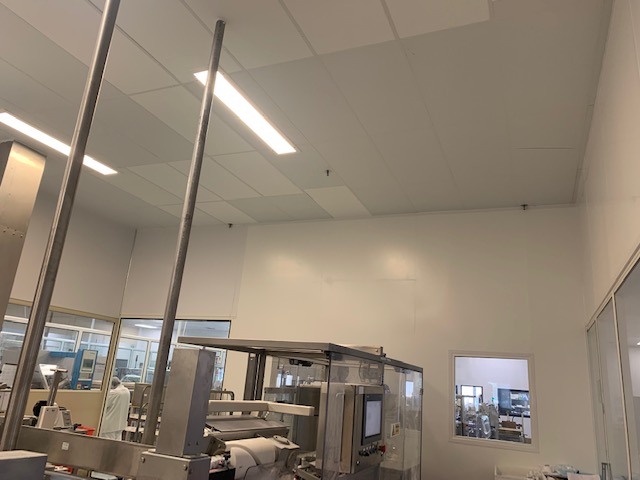Why dehumidify industrial premises?
Humid air causes a lot of damage in industrial environments. A professional air dehumidifier is the ideal solution for lowering humidity levels. Air dehumidifiers remove excess moisture from the air to combat condensation, prevent mould formation and prevent corrosion.
A dehumidified atmosphere is safer for the conservation of products and for the health of employees working within the place.
Why use an industrial dehumidifier?
10 signs that your premises are too damp
Signs that should alert you to the need to dehumidify your industrial premises:
- The appearance of fog in the atmosphere
- The appearance of condensation on walls and surfaces
- Frost in cold rooms
- Clogging of powders
- Product build-up
- The spread of airborne contamination
- Non-adherence of paints
- The appearance of mould and fungi
- Corrosion attacks
- Deterioration of products in their storage space
Air dehumidification by adsorption helps maintain a constant humidity level regardless of external and internal climatic conditions (temperature and humidity levels), even if the premises are cold or unheated, both in summer and winter seasons.
Sources of humid air
Humid air mainly comes from the outside. In addition to the humidity in the external air (external sources: air infiltration, mechanical ventilation, etc.), internal sources must also be considered. This refers to the moisture in the indoor air caused by various factors such as human perspiration, water vapours, and it can also come from production or storage processes, such as wet products or recently washed surfaces.
Essential conditions for air dehumidification:
- For air dehumidification to be effective, the room must be closed and sealed off from the outside air (with as little outside air entering the room as possible).
How the air dehumidifier works
Air dehumidifiers all consist of an essential internal component for their effectiveness: the desiccant wheel. This component is crucial for the machine’s operation. To remove the moisture contained in the air, the desiccant wheel is passed through by two counter current air flows. The first removes the moisture as it passes through the wheel. The second is heated to regenerate the wheel and reactivate it with each rotation. The cycle is continuous and ensures constant dehumidification of the air, regardless of seasonal climatic conditions.
The air dehumidification principle helps reduce energy consumption compared to a traditional ventilation system.
The benefits of air dehumidification:
- Reduced energy consumption (compared with a conventional heating or ventilation system)
- Deep drying (including for building materials)
- Measurable results with a hygrostat
Types of industrial dehumidifiers
The air dehumidifiers found in industrial environments come in several types:
- Industrial desiccant wheel dehumidifiers: DESSICA offers a wide range of standard industrial dehumidifiers from 160 to 13,000 m³/h.
- Industrial condensation dehumidifiers: ducted or mobile
- Temporary solutions and services: allowing you to validate the sizing of a unit before purchase or test it before investing.
To choose the dehumidifier that is right for you, you need to know several parameters, including the air temperature before dehumidification and the desired temperature after dehumidification, the humidity levels before and after dehumidification, and the volume of the room.
Would you like to install an industrial air dehumidifier? Contact us for a personalised quote by email or by phone at contact@dessica.fr or +33 (0)4 74 08 44 44







